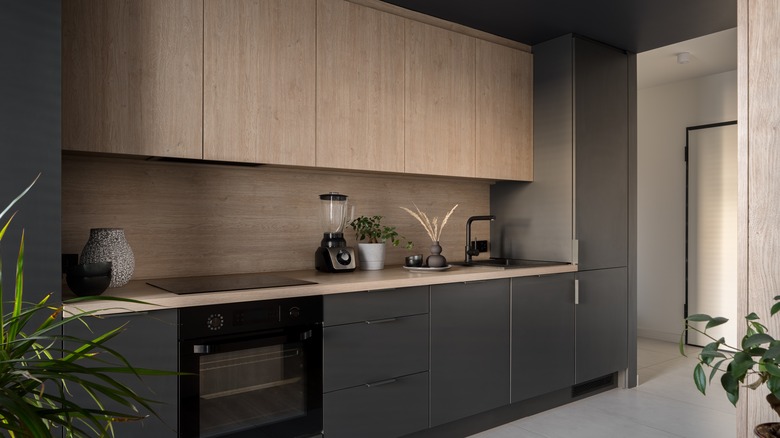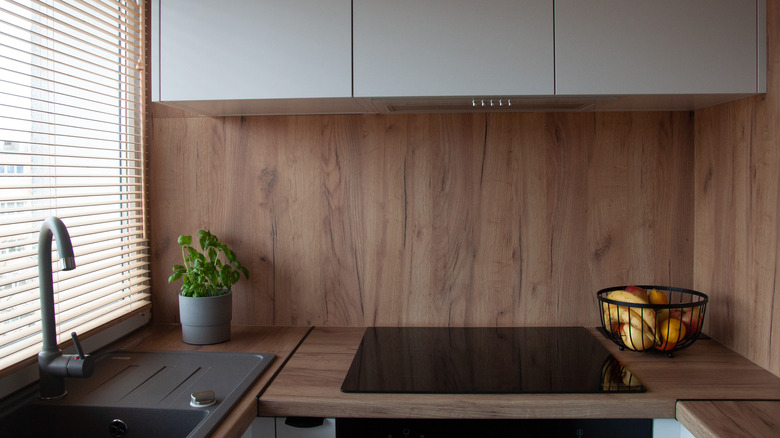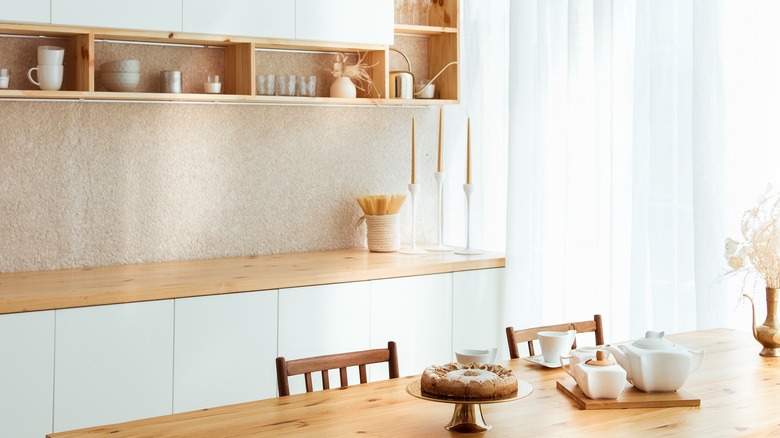What Sets Bamboo Countertops Apart From The Rest?
Bamboo is one material that has gained popularity as an eco-friendly and sustainable alternative to traditional materials. It can be used to make wall panels, furniture, flooring, and countertops. Countertops carry a lot of weight when it comes to putting an interior look together, and bamboo countertops are a great option for style and function. When compared to other materials, bamboo stands out the most because bamboo grass grows and matures very quickly, and it can regenerate, which means the main plant simply produces new stalks after old ones are harvested.
Choosing materials for your home depends on various factors, the most common of which are budget, durability, and design preferences. Bamboo might not be named among the top trendy countertop materials for kitchen aesthetics, but it can't be left out when discussing sustainability. As more people consider the environmental impact of the materials they choose for their homes, a rapidly renewable material like bamboo is an attractive option because it needs fewer resources and, therefore, has lower environmental impacts.
Bamboo is eco-friendly and stylish
You can expect a young bamboo tree to mature in about four months, while the culm or stem can reproduce in three to five years. This is very different from the growth process of traditional hardwoods, which need decades to mature, making bamboo the environmentally friendly choice for those seeking more sustainable options. With that being said, the bamboo fibers are then treated with chemicals in the process of turning the grass into a countertop material, but you can seek out a specialized bamboo countertop contractor if you want your product to be as eco-friendly as possible.
Bamboo countertops also have a nice, unique look due to their grain pattern. Whether you choose panels with clear vertical strips or those with more compressed fibers, they will add natural beauty and warmth to your kitchen or bathroom. Something to note about style is that the options are limited to the natural look of bamboo, so you may not have a wide range of styles to pick from.
Affordability and other things to note
Affordability is another thing that sets bamboo apart from other countertop materials because it typically costs less when compared to the top favorites. For 50 square feet, marble can cost between $2,000 and $5,000, while bamboo can cost between $1,500 and $4,000. Doing the installation yourself can also help cut down overall costs. Bamboo countertops make this a bit easier since they are lightweight, unlike other types like granite slabs, which are labor-intensive to install.
Green Building Supply is a good source of eco-friendly building products, and they offer a stylish bamboo countertop product that comes in easy-to-install slabs. Lowe's also offers a countertop that's made from sustainably harvested vertical grain bamboo. Something else to note about bamboo countertops is that they are not resistant to heat, scratches, or dents, so they must be treated with care after installation. Proper maintenance, however, can sustain them for many years or even a lifetime.


